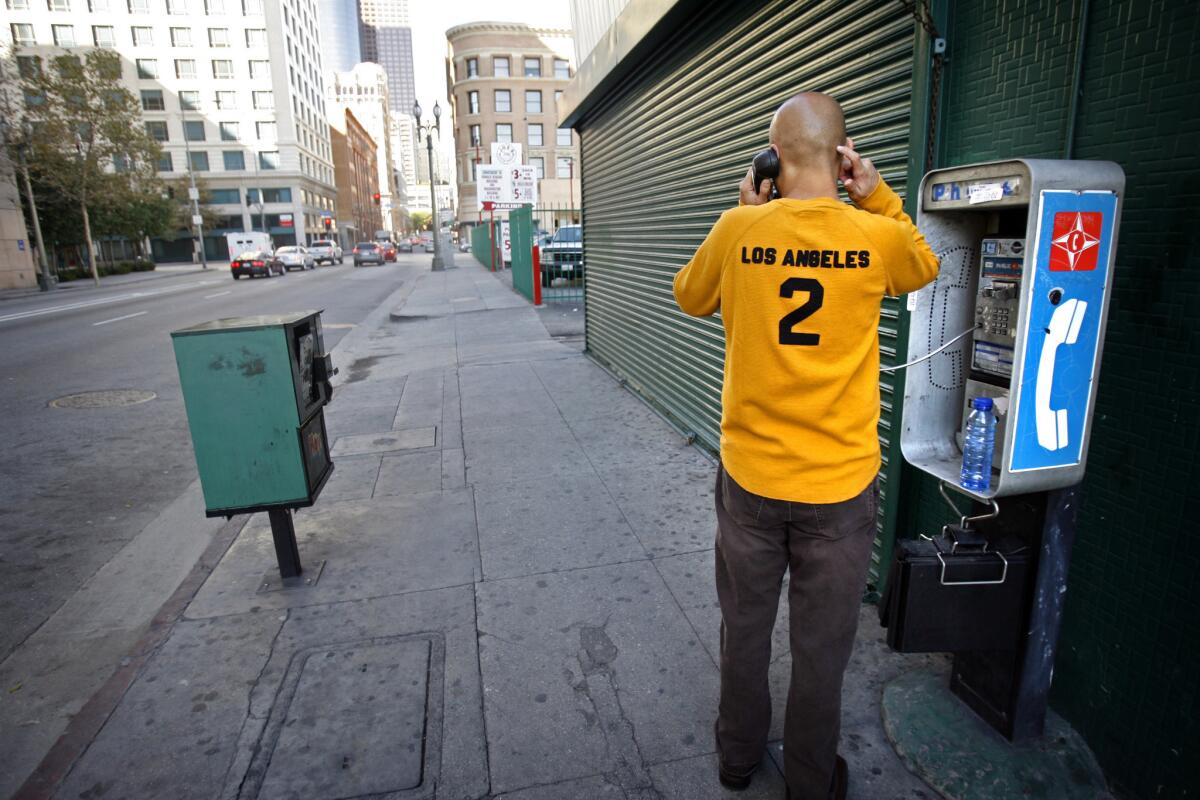California Senate acts on pay phone rates, drug sales

SACRAMENTO -- The state Senate acted Monday on bills aimed at protecting pay phone users against high charges and reducing robberies of pharmacies.
The Senate approved SB 50, which requires California pay phones to have signs warning those using credit or debit cards of the total costs, and allow for fines of up to $50,000 for violations.
“Many consumers have no idea a domestic pay phone call could cost $20 for 20 seconds,” said Sen. Ted W. Lieu (D-Torrance), the bill’s author. “Taking advantage of people who are stranded because of plane delays or bad weather, or troops in areas with no cellphone service, is unfair and beyond reasonable.”
The Senate also approved SB 445 by Sen. Curren Price (D-Los Angeles), prohibiting pharmacies from advertising the sale of or dispensing controlled substances. Price said such ads make the businesses targets for thieves.
He said he introduced the measure because of “the rising tide of prescription drug abuse,” which he said has led to an increase in robberies of pharmacies.
The Senate also voted 26-1 to approve a resolution declaring the third Friday of every April as the National Day of Silence, during which students “take a vow of silence to bring attention to the antilesbian, antigay, antibisexual, and antitransgender name calling, bullying, and harassment faced by individuals in schools.”
The resolution also encourages school districts in the state to enforce laws and policies that prohibit harassment of students and teachers regarding their sexual orientation.
Several Republican senators withheld their votes, and Sen. Joel Anderson (R-Alpine) cast the lone “no” vote, without explanation.
ALSO:
California may go forward without a financial reserve
California tax revenue yields multibillion-dollar surplus
Proposition 30 win no guarantee of fiscal safety for California
More to Read
Get the L.A. Times Politics newsletter
Deeply reported insights into legislation, politics and policy from Sacramento, Washington and beyond. In your inbox three times per week.
You may occasionally receive promotional content from the Los Angeles Times.











